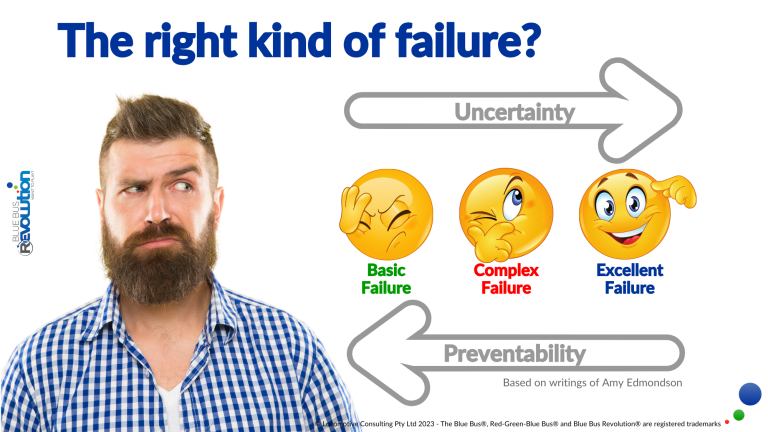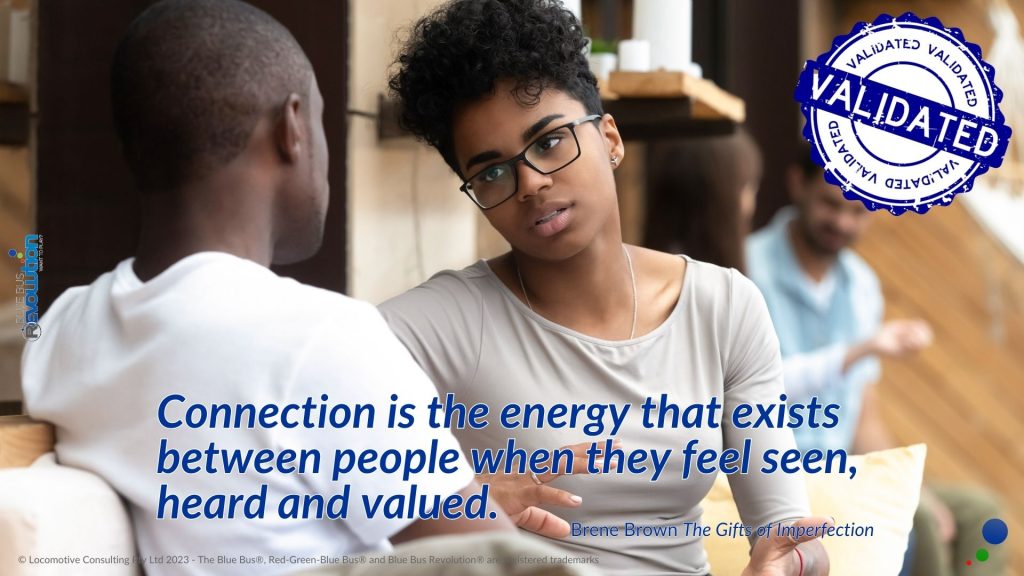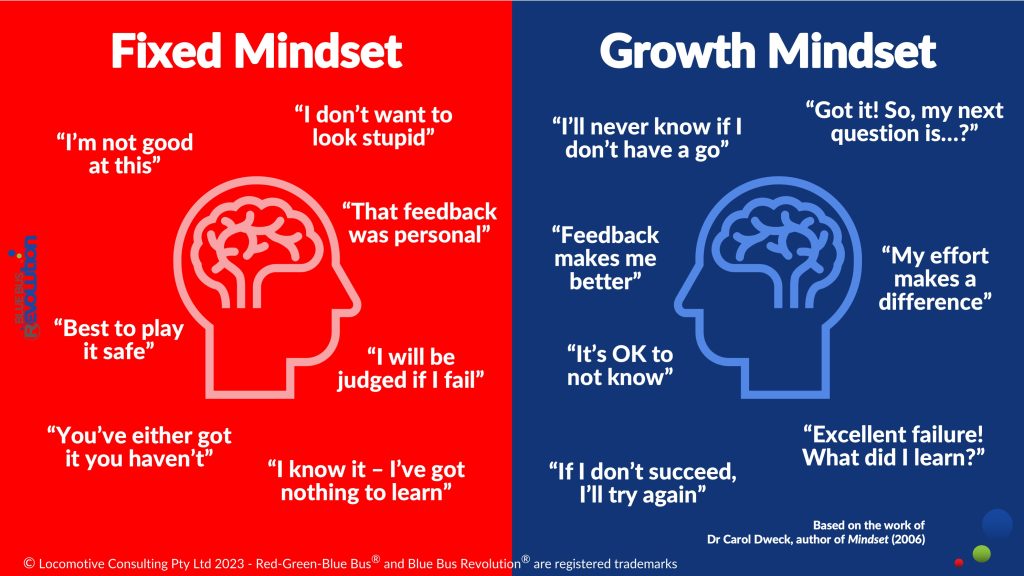Which Bus does your organisation drive when things go wrong? What’s your culture’s mindset towards failure?
Do people get on the Green Bus and sweep of failure under the carpet? Do Red Bus managers immediately look for who to blame? Or does your organisation treat failure as an opportunity to improve?
As individuals, organisations and a society, we have a natural and understandable aversion to failure. When we invest our hard-earned savings, we don’t want to put our financial security at risk. When we pay good money for a service, we rightly expect it to be reliably delivered. When we seek medical care, we shouldn’t be at more risk from the treatment than we are our medical condition. And when we entrust our loved ones to the care of others, we expect that they will do everything they can to protect them from harm.
Yet failure is part of the human condition. People make unintended errors. People make poor choices when the pressure is on. Systems intentionally set up people to fail. Situations arise for which the institutions were not designed. Long past errors in design or manufacture unwittingly catch someone out days, months or years down the track. And it’s only by surfacing these failures that we reveal our blindspots and have the opportunity to prevent them from repeating in future.
So, not all failure is good failure but all failures present opportunities to improve.
This is why high-performance, high-accountability organisations make it safe for people to admit their little f mistakes & errors: the basic failures that reveal blindspots to more complex failures in the waiting.
And to navigate the uncertainty of a VUCA world and to innovate how we do business, we need to use experiments to invite the excellent failures that lead to learning and excellence. It’s only by taking a risk on the result that we learn what works and what doesn’t.
What makes an excellent failure is that we have a culture where it is safe to fail. A culture that is prepared to ask a question without having to have certainty of the answer. A culture that ensures that people and the business are protected from the downsides should experiments go wrong. A culture that makes space to practice, practice, practice when the pressure’s not on so that everyone has the skills and knows the drill come Game Day. And a culture that accepts failure as a necessary part of learning and the inevitable consequence of pushing the boundaries of excellence.
So Which Bus do you choose to drive when it comes to failure?
The choices you make will determine the standards of excellence you get.










